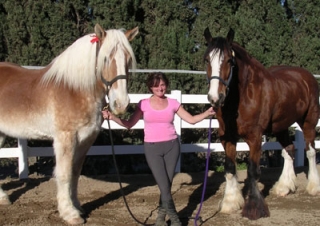Valerie Pollard

Valerie Pollard has been training dogs professionally since 1979, and specializes in working with behavior issues, including fear, anxiety and aggression. She has always had a keen interest in learning and has hosted seminars regularly with international trainers/behaviorists in that regard. Valerie has a degree in Art History from U.C.L.A. and has completed coursework for the Master’s thesis – but left the program to pursue working with dogs. Valerie believes that competing with your dog in any sort of venue can only enhance the relationship, whether it be AKC Obedience, Rally-O, Agility or Flyball. She has competed with her own dogs in the sport of Schutzhund, and attained the owner/handler Schutzhund III title with her GSD “Bodie”. She is also interested in British Working Trials as well as the Puppydog Allstar K9 Games as other challenging and fun ways to compete. Valerie is a charter member of the Association of Pet Dog Trainers and a Clinical member of the International Association of Dog Behavior Counselors. Valerie prefers to think of animals in the following way, as described by Henry Beston in “The Outermost House”: "We need another and a wiser and perhaps a more mythical concept of animals.....we patronize them for their incompleteness, for their tragic fate of having taken form so far below ourselves. And therein we err, and greatly err. For the animal shall not be measured by man. In a world older and more complete than ours they move finished and complete, gifted with extensions of the senses we have lost or never attained, living by voices we shall never hear. They are not brethren, they are not underlings; they are other nations, caught with ourselves in the net of life and time, fellow prisoners of the splendor and travail of the earth."







